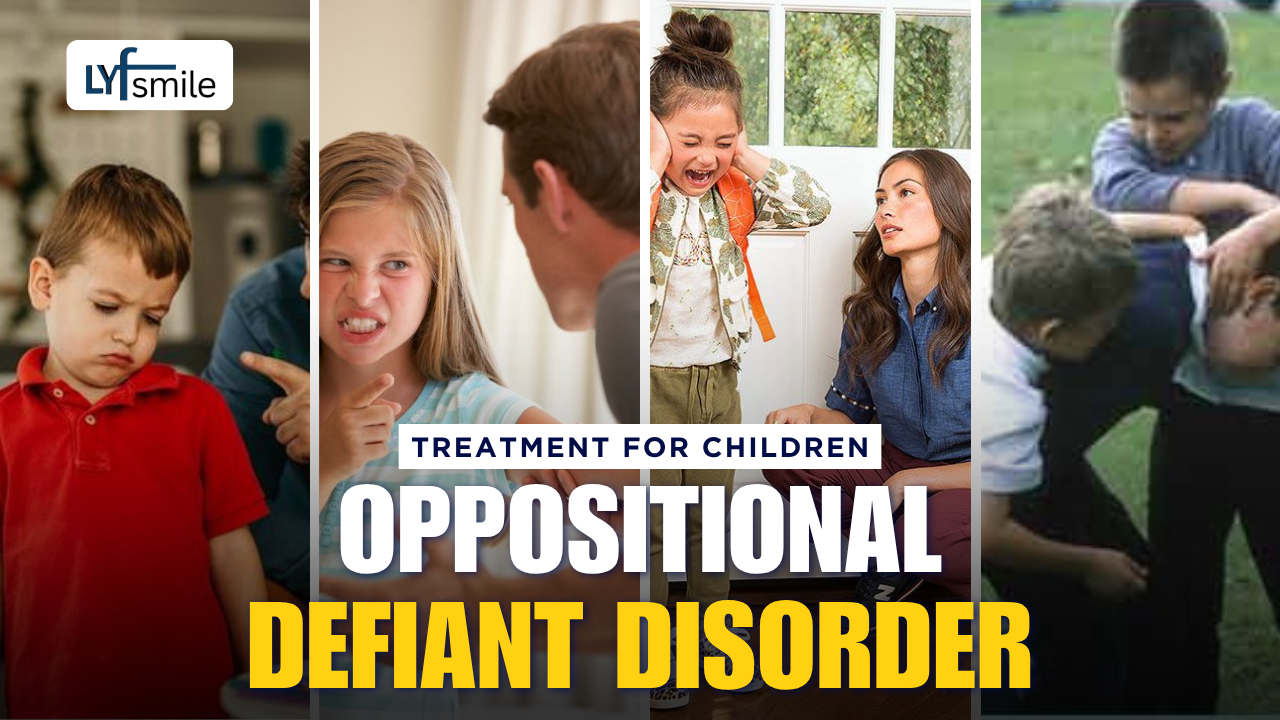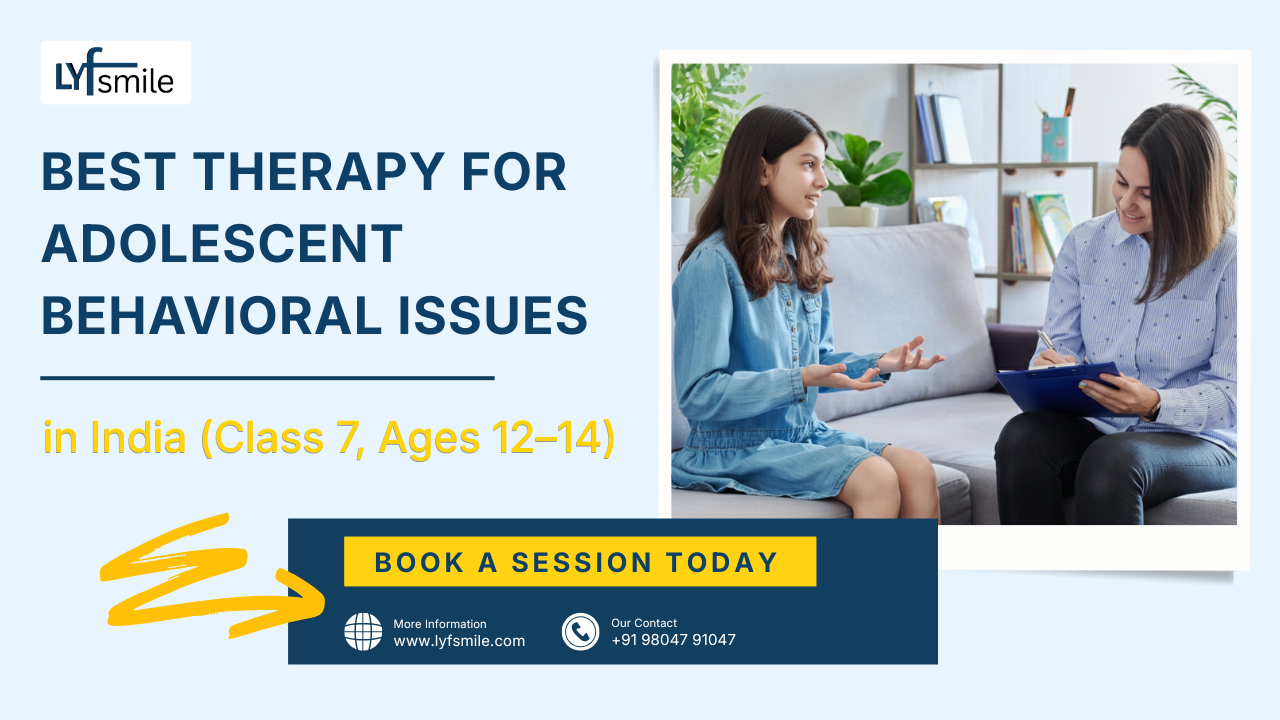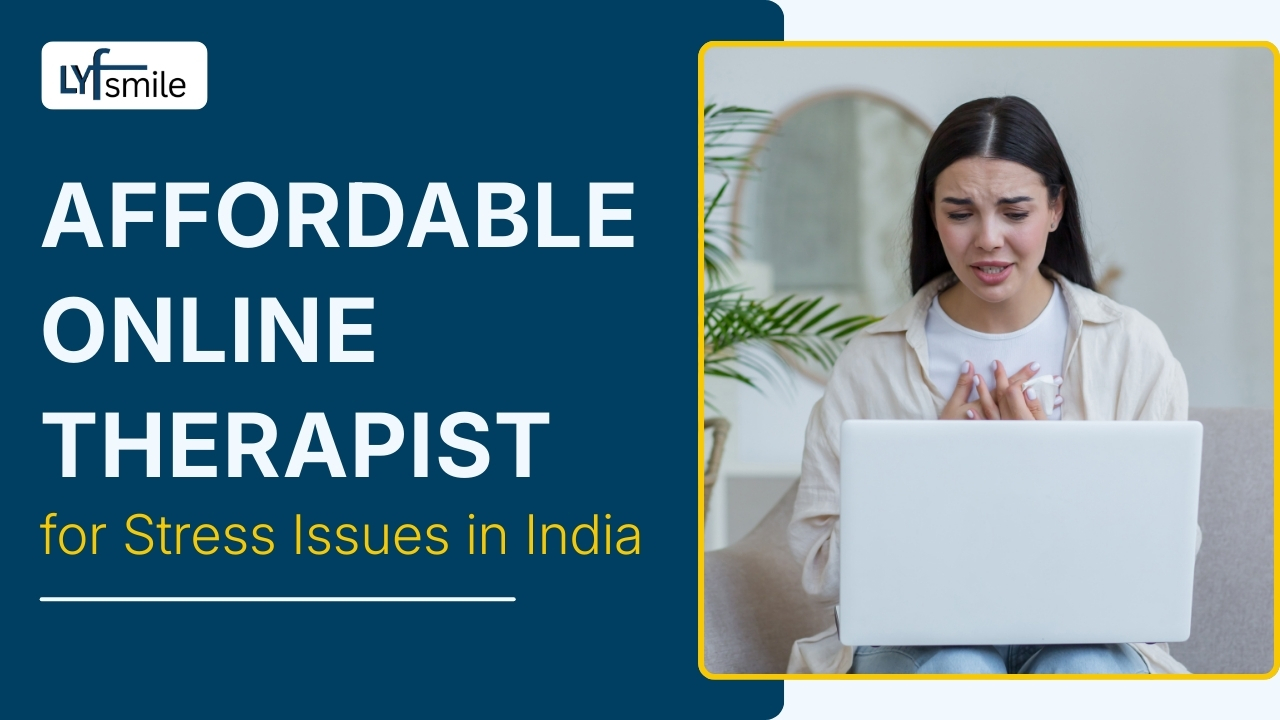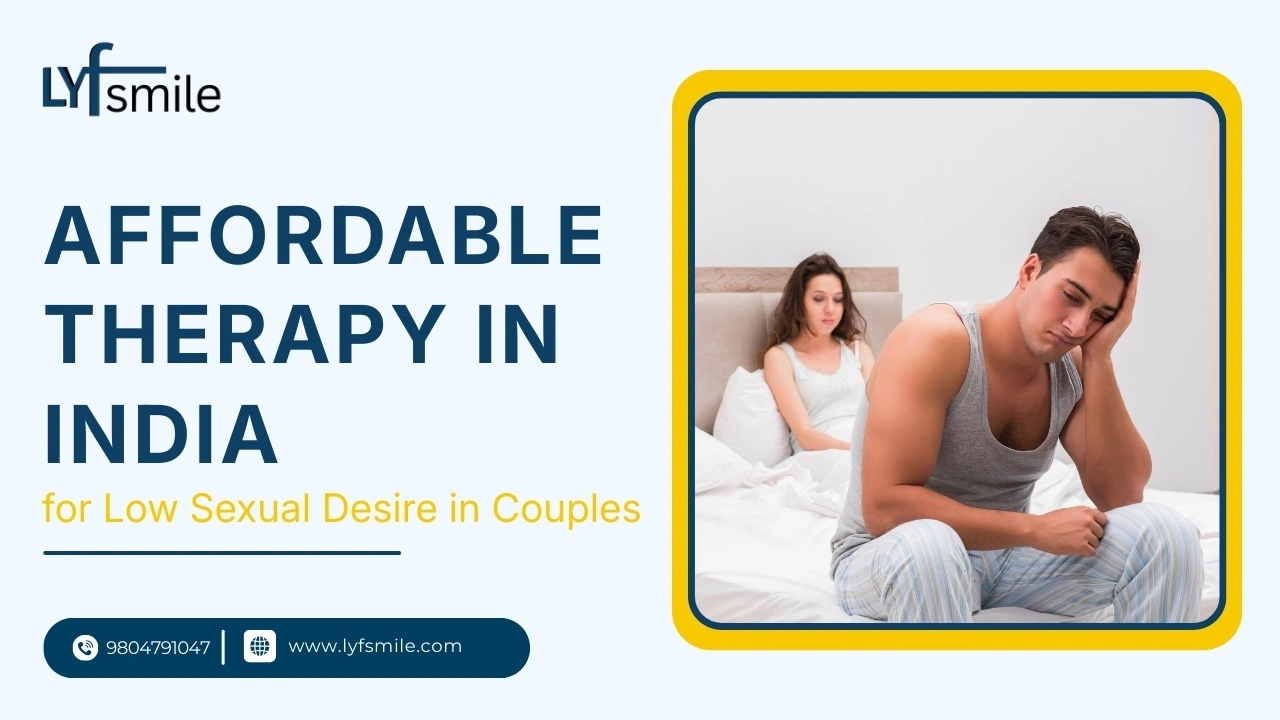
Lakshika Kaushik
Oppositional Defiant Disorder Treatment for Children
Introduction
Raising a child comes with its joys, challenges, and occasional surprises. For some parents, persistent defiant, disobedient, or aggressive behavior in children can be overwhelming. Such behaviors may indicate Oppositional Defiant Disorder (ODD), a condition that, if recognized early, can be effectively managed with proper guidance. Seeking Oppositional Defiant Disorder treatment for children in India ensures that children receive expert care to develop healthy coping strategies, emotional regulation, and positive behavior patterns.
Parents often feel frustrated when standard disciplinary measures do not work. Understanding the nature of ODD and consulting the Best psychologist for Oppositional Defiant Disorder in India can help tailor interventions to each child’s unique needs. Early treatment not only improves the child’s behavior but also strengthens family dynamics and reduces stress in the household.
“Children are not born defiant; they often act out when their emotions and needs are misunderstood.”
Best Psychologist for Oppositional Defiant Disorder in India

Finding the right psychologist is crucial for effective ODD treatment. Experts in child psychology can assess the severity of defiance, identify triggers, and design structured therapy plans to guide children toward better behavior.
Why a specialized psychologist matters:
They provide personalized behavior therapy for children with ODD.
Use evidence-based interventions to reduce aggression and defiance.
Support parents with strategies to manage challenging behavior at home.
Monitor progress and adjust interventions as the child grows.
Improve emotional awareness and communication skills in children.
Example:
A 9-year-old child constantly refusing homework and throwing tantrums at school may benefit from therapy sessions focusing on emotional regulation and positive reinforcement. Over time, with guidance from a trained psychologist, the child learns to express frustration constructively instead of through aggression.
Professional guidance ensures that defiant behaviors do not escalate into more serious issues like conduct disorders or social difficulties. With the right interventions, children can thrive academically, socially, and emotionally while learning the importance of respect, responsibility, and self-control.
Child Behavior Therapy for ODD
Child behavior therapy is a cornerstone in managing Oppositional Defiant Disorder treatment for children in India. This therapy focuses on helping children recognize inappropriate behaviors, develop self-control, and respond to situations in a positive and constructive manner.
Key Approaches in Behavior Therapy
1. Positive Reinforcement:
Rewarding desirable behavior encourages children to repeat it. For example, praising a child for completing chores without argument helps build consistent positive habits.
2. Structured Routine:
Children with ODD often struggle with unpredictability. Establishing daily routines for schoolwork, meals, and playtime provides stability and reduces conflicts.
3. Social Skills Training:
Therapists teach children communication and conflict-resolution skills, helping them handle frustration without aggression.
4. Parent-Child Interaction Therapy (PCIT):
This therapy involves parents directly, training them to reinforce positive behavior and correct defiant behavior calmly and effectively.
5. Cognitive Behavioral Techniques:
Helps children recognize negative thought patterns and replace them with more adaptive ways of thinking.
Real-Life Example
A 7-year-old refusing to follow classroom rules may attend therapy sessions twice a week. Through positive reinforcement and social skills training, the child gradually learns to respond to instructions without anger, significantly improving relationships with teachers and peers.
Benefits
Reduces defiant and aggressive behavior over time
Enhances emotional regulation and problem-solving skills
Improves parent-child and peer relationships
Builds confidence and a sense of responsibility
Supports long-term academic and social success
Child behavior therapy, when applied consistently under the guidance of an experienced professional, significantly increases the success of Oppositional Defiant Disorder treatment for children in India.
ODD Symptoms in Children

Recognizing ODD symptoms in children early is essential for effective intervention. While occasional defiant behavior is normal in childhood, persistent patterns that interfere with daily life may indicate Oppositional Defiant Disorder.
Common Behavioral Symptoms
Frequent temper tantrums: Explosive reactions to minor frustrations.
Argumentative with adults: Regularly challenges authority figures like parents and teachers.
Refusal to comply with rules: Rejecting instructions, school rules, or household routines.
Deliberate annoyance of others: Engaging in behaviors specifically to irritate siblings or peers.
Blaming others: Rarely taking responsibility for mistakes or misbehavior.
Emotional Symptoms
Easily annoyed or irritated by others
Resentful or vindictive behavior, sometimes holding grudges
Low frustration tolerance leading to emotional outbursts
case study-
Consider a 10-year-old who repeatedly refuses homework and yells at teachers despite repeated instructions. At home, the child frequently argues about chores and punishes siblings emotionally by teasing or taunting them. This persistent pattern of behavior, if left unaddressed, can affect academic performance and social relationships.
Key Takeaway
Early identification of ODD symptoms in children allows for timely behavioral therapy and parental guidance, preventing escalation into more severe behavioral or emotional issues. Recognizing the patterns helps parents and caregivers provide structured support while seeking Oppositional Defiant Disorder treatment for children in India.
Oppositional Defiant Disorder Causes and Treatment

Understanding the causes of Oppositional Defiant Disorder (ODD) is crucial for effective intervention. While the exact cause is not always clear, a combination of biological, psychological, and environmental factors often contributes to the development of ODD in children.
Common Causes of ODD
Genetic Factors: Children with a family history of mood disorders, ADHD, or conduct disorders are at higher risk.
Brain Function and Temperament: Some children may have a naturally low tolerance for frustration or difficulty regulating emotions.
Parenting Style: Inconsistent discipline, harsh punishment, or lack of supervision can contribute to defiant behavior.
Environmental Stressors: Exposure to family conflict, trauma, or instability can increase the likelihood of developing ODD.
Social Factors: Peer pressure, negative peer influences, or school difficulties may exacerbate oppositional behaviors.
Treatment Approaches
Effective Oppositional Defiant Disorder treatment for children in India often involves a multi-pronged approach:
Behavior Therapy: Teaches children to identify negative behaviors and replace them with positive responses.
Parent Management Training (PMT): Coaches parents on techniques to reinforce good behavior and manage defiance calmly.
Individual Counseling: Provides children with tools to manage anger, frustration, and social interactions.
Family Therapy: Helps improve communication, strengthen family bonds, and resolve conflicts constructively.
Medication (in rare cases): Prescribed only if there are coexisting conditions like ADHD or severe mood disorders.
case study-
A 10-year-old consistently defying classroom rules and arguing with parents attends both behavior therapy and parent training sessions. Over several months, the child begins to follow instructions without confrontation, while parents learn strategies to reinforce positive behavior and manage conflicts calmly.
Key Takeaway
Identifying the causes of ODD and following a structured treatment plan significantly improves outcomes. Early intervention ensures that children develop healthy coping skills and emotional regulation, leading to better academic, social, and family life.
Child Counselling for Aggressive Behavior

Children with ODD may display aggressive behaviors such as hitting, shouting, or verbal hostility. Child counselling for aggressive behavior focuses on helping children understand the impact of their actions and develop healthier ways to express emotions.
Key techniques used in counselling:
Emotion identification: Teaching children to recognize and name their feelings.
Conflict resolution: Helping children learn to solve problems without aggression.
Role-playing scenarios: Practicing responses to challenging situations.
Safe expression of anger: Activities like drawing, journaling, or physical exercises to release tension.
Example:
A 7-year-old who frequently fights with classmates may attend counselling sessions where they practice expressing frustration verbally instead of physically. Over time, the child learns self-control and better social interaction.
Therapy for Defiant and Disobedient Children
Therapy is an effective tool to help children who consistently show defiance and disobedience.
Common therapy methods include:
Behavior modification therapy: Reinforces positive behaviors and reduces negative ones.
Cognitive-behavioral therapy (CBT): Helps children identify thought patterns that lead to defiance.
Social skills training: Improves communication and empathy.
Family therapy: Strengthens parent-child relationships and creates consistent behavioral expectations.
Example:
A 10-year-old refusing household responsibilities learns through therapy to complete tasks with guidance rather than arguing, building self-discipline gradually.
Parent Management Training for ODD
Parents play a crucial role in managing ODD behaviors. Parent management training (PMT) equips them with strategies to encourage compliance, reinforce positive behavior, and reduce conflicts.
Techniques included in PMT:
Setting clear rules and consequences
Using positive reinforcement for cooperative behavior
Avoiding unnecessary power struggles
Monitoring and rewarding progress consistently
Maintaining calm and structured responses during outbursts
Example:
Parents of an 8-year-old child with ODD learn to use a point-based reward system. Gradually, the child follows instructions more consistently, reducing frequent tantrums.
How to Deal with a Child with Oppositional Defiant Disorder

Managing a child with ODD requires patience, consistency, and understanding.
Effective strategies:
Stay calm: Avoid responding to defiance with anger or punishment.
Be consistent: Apply rules and consequences uniformly.
Use positive reinforcement: Praise and reward good behavior.
Focus on problem-solving: Teach children alternative ways to handle frustration.
Seek professional help: Don’t hesitate to consult child psychologists or therapists.
Example:
During homework time, a parent calmly guides their child to complete tasks without arguing, using a reward system for motivation. Over weeks, defiance reduces and cooperation increases.
Treatment for Oppositional Defiant Disorder
Effective treatment of ODD involves a combination of therapy, parental guidance, and consistent support. The goal is to reduce defiant behavior, improve emotional regulation, and strengthen family relationships.
Treatment methods include:
Behavioral Therapy: Helps children learn self-control and positive behavior patterns.
Cognitive Behavioral Therapy (CBT): Focuses on changing negative thought patterns that trigger defiance.
Parent Management Training (PMT): Equips parents with techniques to reinforce good behavior.
Family Therapy: Improves communication and reduces conflict within the household.
Medication (if needed): Prescribed only when coexisting conditions like ADHD or mood disorders are present.
Example:
A 9-year-old with persistent defiance and aggression attends weekly CBT sessions and parents participate in PMT. Over time, the child learns to manage emotions constructively while parents handle challenges calmly.
Why LyfSmile is the Best Platform for Child Psychological Support
When it comes to managing ODD, ADHD, behavioral therapy, child counseling, or other child psychological help, LyfSmile stands out as a trusted platform in India. It provides comprehensive, professional, and child-friendly mental health services that ensure children receive the guidance and care they need.
Why LyfSmile is the Best Platform for Child Psychological Support
When it comes to managing ODD, ADHD, behavioral therapy, child counseling, or other child psychological help, LyfSmile stands out as a trusted platform in India. It provides comprehensive, professional, and child-friendly mental health services that ensure children receive the guidance and care they need.
Key Advantages of LyfSmile
Access to Certified Child Psychologists: Experts trained specifically in ODD, ADHD, and other behavioral disorders.
Comprehensive Services: Counseling, therapy, parent training, and holistic behavioral support for children.
Flexible Session Options: Both online and in-person sessions tailored to the child’s needs.
Safe and Supportive Environment: Prioritizes privacy, empathy, and child-friendly techniques.
Proven Results: Children often show significant improvement in behavior, emotional regulation, and social skills after consistent therapy.
LyfSmile ensures that children struggling with ODD, ADHD, or behavioral challenges receive structured and personalized support. The platform combines expert child psychologists, tailored therapy programs, and parent guidance to create a nurturing environment where children can learn self-control, reduce defiant behavior, and develop positive social and emotional skills. With flexible options and proven results, LyfSmile has become a go-to destination for parents seeking professional psychological help for their children in India.
Conclusion
Oppositional Defiant Disorder treatment for children in India is most effective when parents, therapists, and children work together. With structured behavioral therapy, parental training, and supportive environments, children can learn emotional regulation, reduce defiance, and develop healthy social skills.
Platforms like LyfSmile make professional child psychological support accessible and effective, providing the best psychologists and tailored therapy plans for every child. By recognizing symptoms early and following a consistent treatment plan, families can help children thrive academically, socially, and emotionally.








